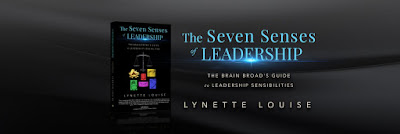Originally published in The Loop
 |
| Mom & Dar |
CommunicationThe exchange of thoughts, messages, or information, as by speech, signals, writing, or behavior.
My
mom has been teaching the value of believing in, listening to, and
raising the bar for people my entire life. I am the oldest of her eight
children and admit, it didn't come natural to me, this believing beyond
appearances thing.
But in our home we were not allowed to ignore ideas that might uncage people. Specifically, in my youth, my brothers.
So I pretended. I pretended I believed my four adopted brothers were as
capable and "like us" as my mom clearly wanted them to be. I pretended,
but with mom's consistent guidance it wasn't too long before pretending
shifted. Not only for me, but for my brothers and others as well.
My brother, Dar, who is most severely impacted by autism, was the most
challenging for most of us to recognize as relatable. Sure, he was
handsome, but the jumping, rocking, stimming - none of it seemed to be
for reasons anyone could fathom.
And goodness knew he wasn't telling us.
Or, was he?
Mom insisted he was. She listened to his habits, his sounds, his
reactions, his motions... she listened with her eyes, her touch, her
ears, her heart. She asked him to speak, to type, to show us what he
wanted to say...
Years and years of this, and as a family we all grew to understand Dar
better. His speech, though, we understand least of all. Mom understands
the words he says better than anyone else, yet still she mostly
misunderstands or invents based on likelihoods.
As a brain
and behavior expert who works with families all around the world, mom
says this is common. This misunderstanding and assuming the words of our
loved ones with speech issues.
There is so much value in knowing the speaker who is hard to understand
is saying something, is worth working to hear and help. Just that belief
alone makes a difference and can help us hear each other better.
But more is needed. We want more than what the belief can do - we want to move into solutions that take us farther.
Mom and Dar are working on that.
In the meantime, please enjoy the short video
below of my brother, Dar, answering mom's questions with patience while
mom misunderstands a lot. It was only during the playback that mom
realized what Dar had actually been saying and Dar was able to confirm.
(the captions are for those of us who are unsure of his words)
As we close out Autism Awareness Month, I encourage you to enjoy all the videos in my mom's Autism On The Road series.
As my mom and brother live a nomadic lifestyle (in their RV, in hotels, invited to stay with family and friends around the world - from California to Montreal to Texas to Paris to Lebanon to Manitoba... a few months from now they'll be in Australia) their intentions have been largely to teach and to learn. As an autistic man my brother tends to inspire questions and reactions, which he and mom like to address with comfort, clarity, and kindness.
Also, as an autistic man living in a variety of spaces, my brother necessarily needs and wants to learn new environmental skills. Food, toilets, and other expectations and availabilities shift and change, often drastically. By spending the time closely with mom, they learn how to handle these things together.
Lately, a big focus has been on communication. Communication of all sorts but, in particular, Dar is focusing on speech. When he watches the videos he's surprised by how unclear his language is. When mom watches them, she's surprised by how much of his language she had misunderstood.
Together they watch them and Dar helps mom understand. Captions are added and the videos are shared.
They are the most recent (and shortest) videos on the Autism On The Road Playlist, and I recommend them. Of course, I also recommend the entire series!
Follow this link to view the playlist: Autism On The Road







